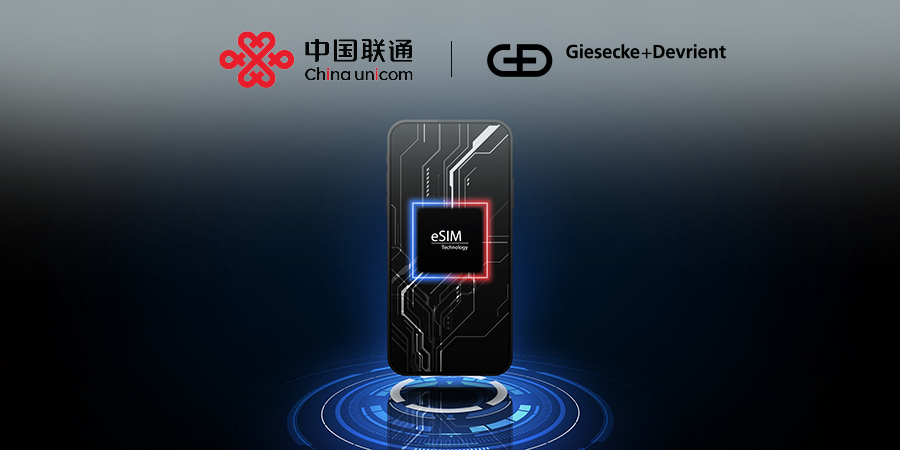Giesecke and Devrient (G+D)— a well-known company specializing in digital security, financial platforms, and currency technology— along with China Unicom, have signed a memorandum of understanding (MoU) at this year's MWC to form a strategic partnership focusing on eSIM technology and services. The goal of this agreement is to create a strong collaboration to advance eSIM technology and discover new applications in different industries.
China Unicom is a prominent player in the Chinese market, particularly in the rapidly growing IoT sector. By teaming up with G+D, a leading eSIM company, China Unicom aims to introduce eSIMs in various sectors. Both companies are addressing the increasing need for technologies and services that support IoT scenarios. G+D emphasized that billions of devices will soon be connected to the internet, and eSIM technology will be crucial in simplifying the deployment and management of IoT solutions.
Fengwei Chen, Deputy General Manager at Unicom Vsens, mentioned that China Unicom has been authorized to implement eSIM applications in wearable devices, IoT, laptops, and tablets, making them the only operator in China supporting all these areas.
China Unicom plans to enhance the eSIM ecosystem. Chen also stated that the IoT industry is entering a new phase of development, and the MoU with G+D will not only strengthen their partnership but also promote the widespread use of eSIM technology across various sectors. This collaboration is expected to usher in a new era of innovation in eSIM technology.
The eSIM: A New Era of Innovation
eSIM technology eliminates the need for physical SIM cards, enabling seamless connectivity across devices without the constraints of traditional SIM card slots. This opens up opportunities for enhanced connectivity in various IoT (Internet of Things) devices, wearables, smartphones, and other connected devices. With traditional SIM cards requiring dedicated slots within devices, eSIM technology enables manufacturers to design sleeker and more compact devices by eliminating the need for physical SIM card slots. This opens up new possibilities for device form factors, such as thinner smartphones, smaller wearables, and even connected IoT devices.
Beyond traditional telecommunications services, eSIMs can be integrated into various sectors such as automotive, healthcare, logistics, and smart cities, facilitating innovative solutions and services tailored to specific industry needs.
eSIM technology facilitates seamless global connectivity by enabling devices to store multiple operator profiles simultaneously. This means that travelers no longer need to acquire local SIM cards when visiting different countries; instead, they can simply switch to a local operator's profile through remote provisioning, ensuring uninterrupted connectivity wherever they go.
eSIM technology is driving innovation in the IoT and M2M (Machine-to-Machine) sectors by simplifying the process of connecting and managing vast networks of connected devices. By leveraging the eSIM, devices such as smart meters, connected cars, and industrial sensors can be remotely provisioned and managed, streamlining deployment and maintenance processes for IoT solutions.





